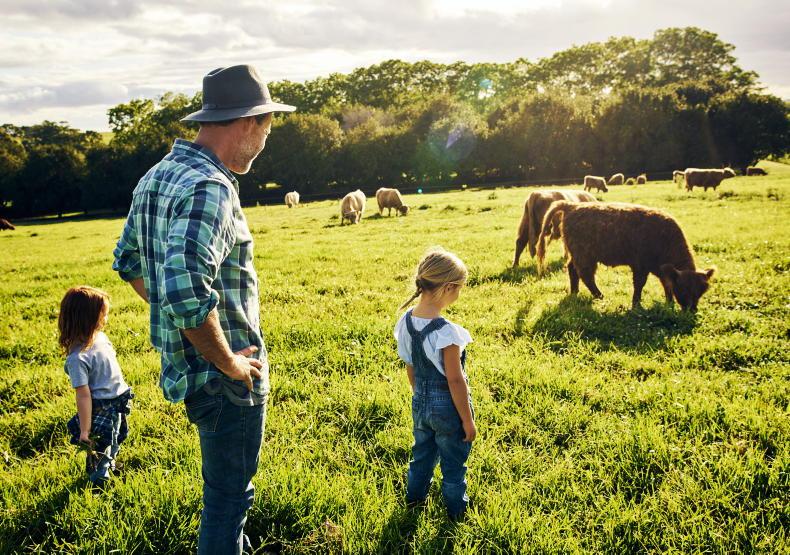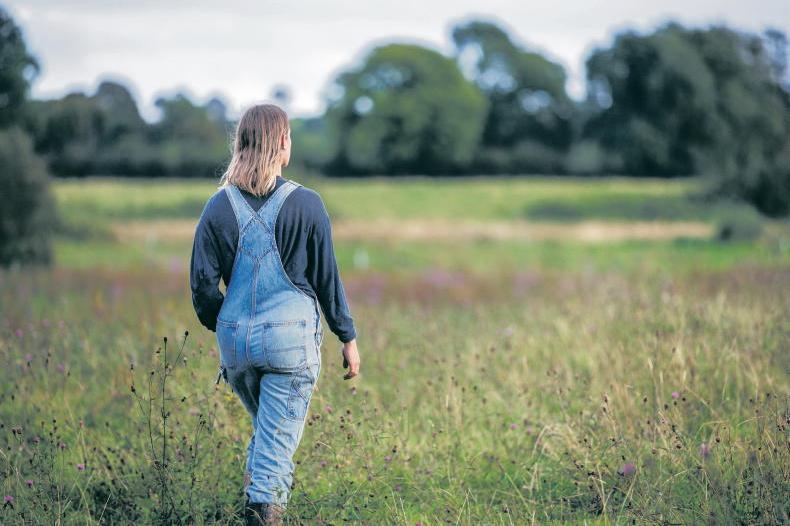The topic of succession, forward planning and wills is of constant relevance to farmers.
Over the next four weeks I will discuss succession planning and what you need to consider.
This topic for discussion cannot start early enough so all farmers are well equipped to consider all their options.
The decision to transfer to a family member, create a partnership, sell up or lease out the farm will all have different consequences.
Whatever the choice, it is vitally important to meet up with the experts such as, your accountant, legal adviser/solicitor, and your tax consultant to discuss all options. Farm succession is a specialist area.
Issues to be considered:
All family members are to be catered for fairly. A will is very important here. The family home is normally part of the farm business so would usually go to the successor.If the transfer takes place during the owner’s lifetime, the owner (and spouse) will require an income. Future care needs should also be discussed. Is there a personal pension in place? What happens if there is no successor or no family member wishes to continue farming? Is leasing or selling an option?Is a succession farming partnership an option? Is the farm viable? Tax implications such as income tax, capital acquisitions tax (CGT), capital gains tax (CGT), and stamp duty. Certain reliefs may be claimed from each of these taxes. Banking implications. Communication
A frank and honest discussion needs to be held among all family stakeholders and the successor identified. It is a wise move to avail of tax advice in advance of any agreement. A spouse’s opinion is important and the successor should possess and understand all the necessary traits, qualifications and responsibilities they are undertaking. Involving all family members in the decision making will avoid disharmony in later years. There are often emotional attachments underneath but it is necessary to voice these difficult issues in order to move forward. Cases in which the owner dies suddenly with no will in place can lead to very stressful situations and huge problems to be solved.
The farmhouse
Generally the farm dwelling house will form part of the farmyard and this asset will likely go to the identified successor. A decision will need to be made, does this happen at transfer time (with the parents/owners having a lifetime right of residence) or at a later time. This decision can be secured by the deed of transfer containing conditions as to the future up keep and income for the parents/owners for their lifetime, providing a level of protection for them.
Future care and income needs
It is likely the owner will be entitled to the contributory old age pension, depending on age, but this income may need to be supplemented from the farm, if no personal pension is in place. This can often lead to two families living from the farm. The required income can come from many sources depending on the succession plan such as rent from lands not transferred or a partnership salary. Care needs should also be considered as there may be a requirement to qualify for the Fair Deal Scheme (means assessed) if nursing home care is required in the future.
Banking and legal costs
Existing farm loans and accounts may need to be changed once a successor is appointed. It is important to discuss options with your bank to ensure any existing terms and conditions are not affected such as interest rates or loan terms. The deeds of the farm may also be held as security against any existing borrowings.
Legal costs will be incurred with any transfer such as solicitor’s fees, VAT and land registry fees. Agree solicitor’s cost in advance of the process.
Stamp duty exemption
A stamp duty exemption can apply in farm succession if the successor is under 35 at date of transfer, otherwise 1% stamp duty applies. The successor must have the relevant qualifications.
Succession tax credit
There is an annual tax credit of €5,000 for up to five years available to farmers entering a succession farm partnership on a profit sharing ratio. You must agree to enter into a registered farm partnership and then transfer to a registered succession partnership to avail of the credit.
Viability of farm
When considering succession plans it is vital to take into account is there sufficient net income being generated from the existing operation to sustain two families. Are there necessary changes to be made on the farm to improve profitability, structural or operational?
Succession planning can be very complex with many decisions to be made but getting started early is the key. Engage with the experts and discuss all options.
Read more
Tips for farming money matters in 2021
Money Mentor: to register for VAT or not?
The topic of succession, forward planning and wills is of constant relevance to farmers.
Over the next four weeks I will discuss succession planning and what you need to consider.
This topic for discussion cannot start early enough so all farmers are well equipped to consider all their options.
The decision to transfer to a family member, create a partnership, sell up or lease out the farm will all have different consequences.
Whatever the choice, it is vitally important to meet up with the experts such as, your accountant, legal adviser/solicitor, and your tax consultant to discuss all options. Farm succession is a specialist area.
Issues to be considered:
All family members are to be catered for fairly. A will is very important here. The family home is normally part of the farm business so would usually go to the successor.If the transfer takes place during the owner’s lifetime, the owner (and spouse) will require an income. Future care needs should also be discussed. Is there a personal pension in place? What happens if there is no successor or no family member wishes to continue farming? Is leasing or selling an option?Is a succession farming partnership an option? Is the farm viable? Tax implications such as income tax, capital acquisitions tax (CGT), capital gains tax (CGT), and stamp duty. Certain reliefs may be claimed from each of these taxes. Banking implications. Communication
A frank and honest discussion needs to be held among all family stakeholders and the successor identified. It is a wise move to avail of tax advice in advance of any agreement. A spouse’s opinion is important and the successor should possess and understand all the necessary traits, qualifications and responsibilities they are undertaking. Involving all family members in the decision making will avoid disharmony in later years. There are often emotional attachments underneath but it is necessary to voice these difficult issues in order to move forward. Cases in which the owner dies suddenly with no will in place can lead to very stressful situations and huge problems to be solved.
The farmhouse
Generally the farm dwelling house will form part of the farmyard and this asset will likely go to the identified successor. A decision will need to be made, does this happen at transfer time (with the parents/owners having a lifetime right of residence) or at a later time. This decision can be secured by the deed of transfer containing conditions as to the future up keep and income for the parents/owners for their lifetime, providing a level of protection for them.
Future care and income needs
It is likely the owner will be entitled to the contributory old age pension, depending on age, but this income may need to be supplemented from the farm, if no personal pension is in place. This can often lead to two families living from the farm. The required income can come from many sources depending on the succession plan such as rent from lands not transferred or a partnership salary. Care needs should also be considered as there may be a requirement to qualify for the Fair Deal Scheme (means assessed) if nursing home care is required in the future.
Banking and legal costs
Existing farm loans and accounts may need to be changed once a successor is appointed. It is important to discuss options with your bank to ensure any existing terms and conditions are not affected such as interest rates or loan terms. The deeds of the farm may also be held as security against any existing borrowings.
Legal costs will be incurred with any transfer such as solicitor’s fees, VAT and land registry fees. Agree solicitor’s cost in advance of the process.
Stamp duty exemption
A stamp duty exemption can apply in farm succession if the successor is under 35 at date of transfer, otherwise 1% stamp duty applies. The successor must have the relevant qualifications.
Succession tax credit
There is an annual tax credit of €5,000 for up to five years available to farmers entering a succession farm partnership on a profit sharing ratio. You must agree to enter into a registered farm partnership and then transfer to a registered succession partnership to avail of the credit.
Viability of farm
When considering succession plans it is vital to take into account is there sufficient net income being generated from the existing operation to sustain two families. Are there necessary changes to be made on the farm to improve profitability, structural or operational?
Succession planning can be very complex with many decisions to be made but getting started early is the key. Engage with the experts and discuss all options.
Read more
Tips for farming money matters in 2021
Money Mentor: to register for VAT or not?









SHARING OPTIONS